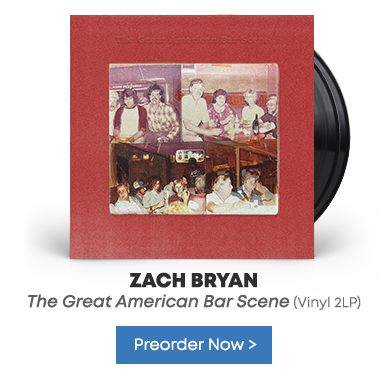Second acts aren't guaranteed. After the Beatles called it quits in 1970, no one knew if the members of the Fab Four – collectively great, of course – would excel on their own. So intertwined into the Beatles sound is the lyrical contrast between John Lennon and Paul McCartney – as well as the worldly experimentation of guitarist George Harrison and subtle albeit lively shadowing work of drummer Ringo Starr – that the thought of these elements divorced from one another seemed akin to handling shattered glass. An object once beautiful becomes an array of mismatched, jagged edges. But any worries regarding whether or not the individual Beatles could turn out quality material were quickly put to rest. And with the recent release of the massive, career-spanning Harrison trove The Vinyl Collection, which comprises newly remastered versions of all his solo albums (also released on individual LP), we consider five must-own post-Beatles records from John, Paul, George, and Ringo.
George Harrison All Things Must Pass
Released in 1970, the triple-LP All Things Must Pass yielded a number-one single and showed that the so-called "quiet Beatle" wasn't so reticent after all. Expansive and soulful, it serves as evidence that in his down time, Harrison had been listening to quite a bit of the Band and Bob Dylan, who worked with the former Beatle on the album. Decades later, it's not just the guitar work that captures your attention – spinning like a tornado on "Wah-Wah" and caressing like a lullaby on the chart-topping "My Sweet Lord" – but how warm, textured, and broad everything sounds. Harrison, for instance, addresses mortality (the hectic, swirling, slightly funky "Art of Dying"), the ins-and-outs of romance (the twisted and bluesy "I Live for You"), and religion and spirituality (the peppy and choral-like "Awaiting On You All").
Paul McCartney Flaming Pie
McCartney, who, along with Starr, is the only surviving Beatle, has amassed a lengthy and sprawling body of solo work. Where to start? The electronic tinkering he did in the Fireman? That's McCartney at his most odd. The early 70s album Ram, where intimacy and grandiosity collide? It's McCartney at his most playful, tuneful, and, for better or worse, unfiltered. But if one strays from the extremes, 1997's Flaming Pie remains hard to deny. It's a work of tightly crafted pop songs with just a hint of weirdness. Working with super-producer and ELO architect Jeff Lynne, who brings a layered conviviality to everything he touches, McCartney sounds alternately energized and informal. The title track features a stomping, bar-room-ready piano. "The World Tonight" comes with a woozy, Western feel. And the romantically tranquil "Someday" charms with subdued orchestration from Beatles collaborator George Martin.
Ringo Starr Ringo
These days, a Ringo concert is essentially a giant celebration – a salute to the works of the Beatles, Starr's solo career, and his pals. It's big, and borderline theatrical. If you go, expect some pizzazz and lots of Broadway-like lighting. Arguably, the template for such a live presentation was cemented with this 1973 album, which followed a collection of standards (Sentimental Journey) and a cutesy, ill-advised dip into country music (Beaucoups of Blues). Ringo possesses festive feel. All four Beatles make appearances – rumors of the band reuniting swirled during the recording sessions – and even slower songs, such as the hit "Photograph," glisten and sparkle. Everything here also feels bright. The keyboards and sax on "Oh My My" throw a dance party, and tracks like "You're Sixteen" feel ripped from a 50-era jukebox. All that's missing is a banana split.
John Lennon John Lennon/Plastic Ono Band
John Lennon/Plastic Ono Band doesn't waste any time putting listeners on guard. The album-opening "Mother" introduces fans to the record via tolling bells, a dooming sound that immediately places a cloak on the material. While many of the Beatles' final works are far from chirpy, Lennon seems to intentionally create a distance between him and the sound popularized by his former Liverpool mates. There's also the darkness of the subject matter. The deeply personal "Mother" hints at the emotional complexities of a less-than-ideal parent-child relationship, and does so with a sparse piano and tick-tocking beat. Politics, faith, and false pop idols also emerge. Lennon's first proper solo album remains a soul-baring portrait steeped in intimacy and overflowing with striking moments. See the intense railroad-like drive of "Remember," rejection-fueled anger of "Isolation," and spine-tingling finale "God," the latter punctuated with spiky piano and hollered statements where Lennon once and for all bids adieu to the Beatles.
The Travelling Wilburys The Traveling Wilburys Vol. 1
This choice might be cheating. It isn't a Harrison solo effort but a supergroup that also features Bob Dylan, Tom Petty, Roy Orbison, and the aforementioned Jeff Lynne. But what a blast. The jangly, rootsy pop collection showcases a bunch of rock n' roll greats cutting loose. It's also worth noting that the album has only grown in stature, as a new wave of folksy rockers like Jenny Lewis and M. Ward have sung its praises. The standout track remains the album's opening, Harrison-led "Handle With Care," which boasts highly melodic, windswept guitar strumming and a pre-chorus vocal hook from Orbison. Harrison primarily contributes guitar work and backing vocals, supporting a feisty Dylan on "Dirty World," a jolly Petty on "Last Night," and, well, everyone on the goofy Caribbean Western "Margarita." Another highlight: The Harrison-graced "Heading for the Light," as bouncy as the early songs from his former group while also sporting constantly shape-shifting, high-energy guitar tones.
3rd Mar 2017




































